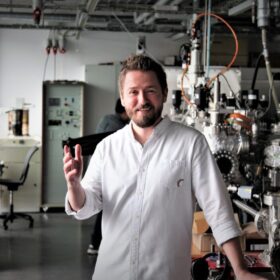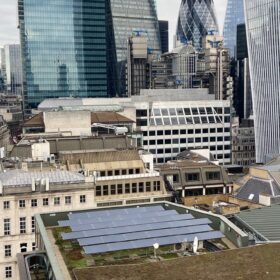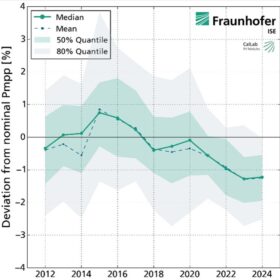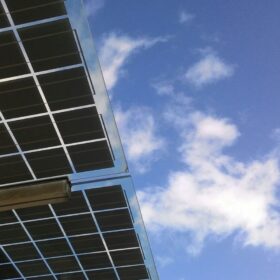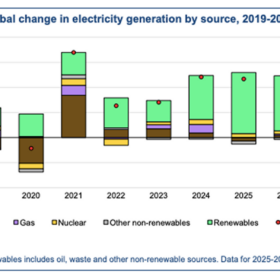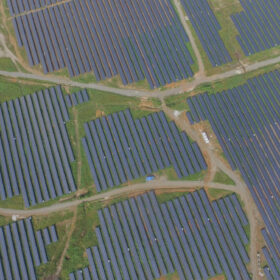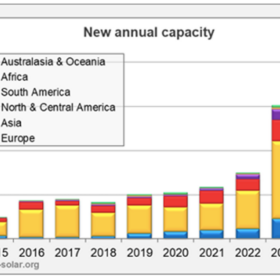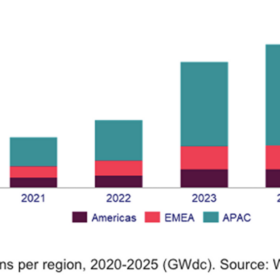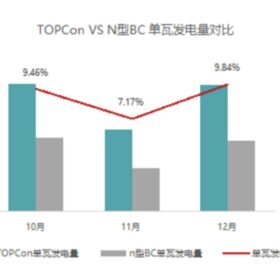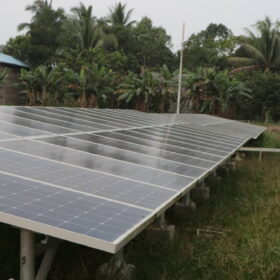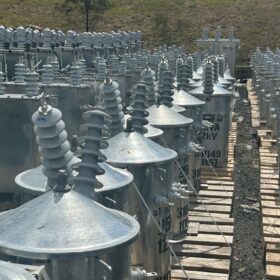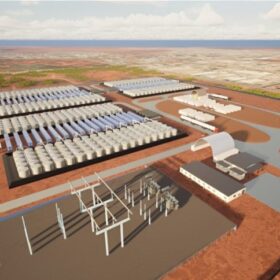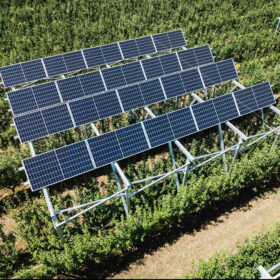Transparent tandem solar cell hits record 12.3% efficiency
A global research team has developed a tandem solar cell with 30% transparency by combining perovskite and organic layers, achieving a record 12.3% efficiency for transparent solar cells.
Rooftop solar could supply two-thirds of global power, study finds
Researchers have found that widespread deployment of rooftop solar could cover the vast majority of the world’s electricity consumption, while lowering global temperatures by up to 0.13 degrees Celsius.
Fraunhofer ISE research finds solar module output ‘often overstated’
A longitudinal research project from the Fraunhofer Institute for Solar Energy Systems ISE reveals that since 2017, the institute has measured less power on average in a solar module than promised by the manufacturer.
PNG opens tender for solar-plus-storage minigrid
The United Nations Office for Projects Services has kicked off a tender for the development and construction of a solar and battery storage minigrid in Papua New Guinea. The deadline for applications is March 24, 2025.
Solar generation grew by 30% in 2024, says IEA
The International Energy Agency’s latest market analysis says global solar generation surpassed the 2,000 TWh mark in 2024. It grew by 30% year-on-year for its highest growth rate since 2017, adding 475 TWh in the calendar year.
Gurin Energy completes 75 MW PV project in Philippines
The ground-mounted 75 MW project features more than 136,000 solar panels deployed across an 80-hectare site. Retail electricity units belonging to Philippine power company AboitizPower will offtake the energy produced.
Global utility-scale solar additions hit 182 GW in 2024
Utility-scale solar installations reached 182 GW (AC) in 2024, with the top 33 countries now accounting for 765 GW, or roughly 93% of the global total, according to Wiki-Solar.
Wood Mackenzie tips solar growth to stagnate in 2025
Wood Mackenzie’s latest report forecasts that 493 GW (DC) of solar will be added throughout the world this year, compared to 495 GW in 2024. Solar module prices are expected to rise this year as manufacturers aim to recover profit losses from the past two years.
JinkoSolar’s TOPCon modules offer 8.82% yield gain in field test
JinkoSolar’s latest n-type tunnel oxide passivated contact (TOPCon) modules delivered higher energy yield per watt than a competitor’s n-type back contact (BC) modules in a three-month field test in Japan, under varying irradiance levels.
Indonesian think tank says nation at crossroads with energy transition
Indonesian clean energy policy think tank, the Institute for Essential Services Reform (IESR), said 2025 will be a pivotal year for Indonesia’s energy transition, as the nation has fallen behind targets in recent years.
